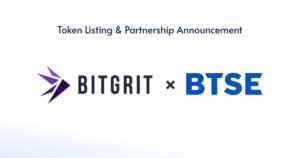 Tether denies WSJ allegations of falsified bank documents
Tether denies WSJ allegations of falsified bank documents Tether denies WSJ allegations of falsified bank documents
The stablecoin firm called an earlier report "wholly inaccurate and misleading."

Cover art/illustration via CryptoSlate. Image includes combined content which may include AI-generated content.
Tether has denied reports on March 3 suggesting that it was involved in external attempts to obtain bank accounts through falsified documents.
WSJ claims Tether exec signed false documents
On March 3, the Wall Street Journal claimed that “Tether Holdings and [a] related crypto broker obscured identities” as evidenced by documents it has obtained.
That article quoted messages from Tether Holdings Ltd. owner Stephen Moore, which suggest that a major China-based Tether trader used false invoices and contacts to obtain bank accounts after being restricted from the global banking system.
The Wall Street Journal said that Moore advised the other party to halt those actions. Moore supposedly expressed concerns about the risk of using false documents and concerns about arguing matters “in a potential fraud/money laundering case.”
The false documents were nevertheless signed by Moore, according to the report. As such, at least one Tether executive is allegedly complicit in permitting fraud.
Tether rejects WSJ claims as “wholly inaccurate”
Though Tether did not address the specific claims in the article, it responded to the allegations in general by calling the article “wholly inaccurate and misleading.”
The company added that it maintains ongoing compliance programs and works with various enforcement agencies, including the U.S. Department of Justice (DOJ). It said that it would continue to provide its stablecoin services despite “unfair attacks.”
Tether CTO Paolo Ardoino commented on the matter on Twitter, stating that the report contained a “ton of misinformation and inaccuracies.” He also said that he heard “clown honks” while on stage during a conference and attributed that event to the Wall Street Journal — presumably meaning that the article’s publication led to audience heckling.
The Wall Street Journal has criticized Tether on many other occasions. In February, it claimed that a small group of individuals once controlled most of Tether’s shares. Last summer, it claimed that Tether was at risk of insolvency and also claimed that hedge funds had shorted USDT. The paper has also criticized the company’s reserve transparency and lending activities. Tether has responded to many of those claims.
Despite frequent criticism, Tether’s USDT token remains the largest stablecoin. It currently has a market cap of $71 billion and a 24-hour volume of $43 billion.



 Farside Investors
Farside Investors 



























































































